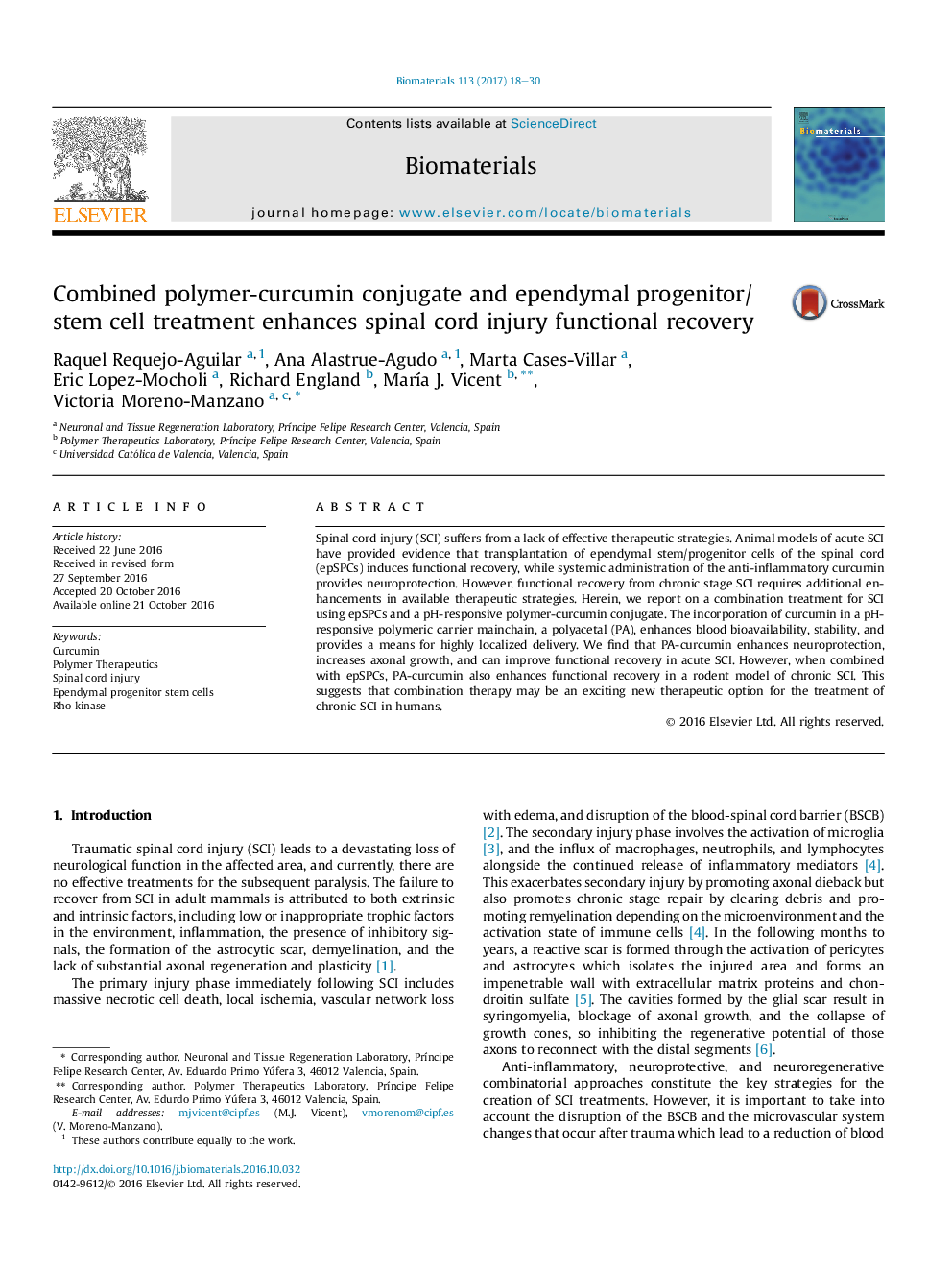| Article ID | Journal | Published Year | Pages | File Type |
|---|---|---|---|---|
| 6451039 | Biomaterials | 2017 | 13 Pages |
Spinal cord injury (SCI) suffers from a lack of effective therapeutic strategies. Animal models of acute SCI have provided evidence that transplantation of ependymal stem/progenitor cells of the spinal cord (epSPCs) induces functional recovery, while systemic administration of the anti-inflammatory curcumin provides neuroprotection. However, functional recovery from chronic stage SCI requires additional enhancements in available therapeutic strategies. Herein, we report on a combination treatment for SCI using epSPCs and a pH-responsive polymer-curcumin conjugate. The incorporation of curcumin in a pH-responsive polymeric carrier mainchain, a polyacetal (PA), enhances blood bioavailability, stability, and provides a means for highly localized delivery. We find that PA-curcumin enhances neuroprotection, increases axonal growth, and can improve functional recovery in acute SCI. However, when combined with epSPCs, PA-curcumin also enhances functional recovery in a rodent model of chronic SCI. This suggests that combination therapy may be an exciting new therapeutic option for the treatment of chronic SCI in humans.
